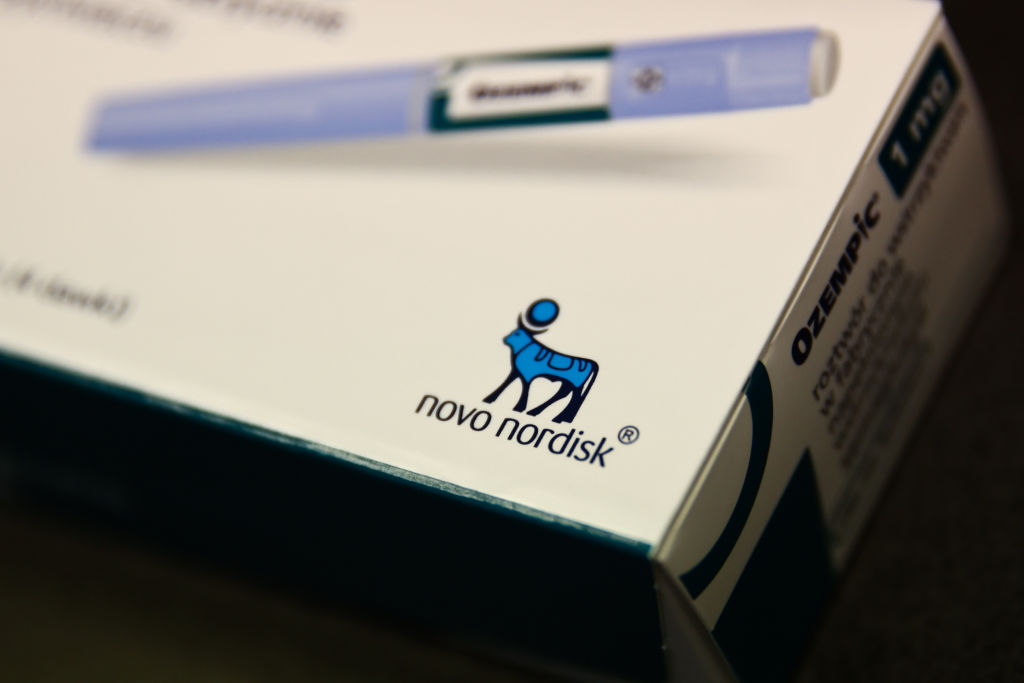Novo Nordisk said on Wednesday that its highly anticipated experimental weight-loss pill amycretin was safe and tolerable for patients in an early-stage trial, with mild-to-moderate side effects.
The maker of blockbuster drugs Wegovy and Ozempic said in March that a Phase I trial of the pill version of amycretin showed participants lost up to 13.1% of their weight after 12 weeks, prompting shares to surge more than 8%.
That compared to weight loss of about 6% after 12 weeks and 15% after 68 weeks in trials of Wegovy.
The company presented full data from the Phase I study at the European Association for the Study of Diabetes meeting in Madrid.
“What we see in the study period is a 13.1% weight loss with a side effect profile comparable to what we normally see with incretin-based therapy, so primarily gastrointestinal side effects,” Martin Holst Lange, Novo’s head of development, said in an interview ahead of the presentation.
One serious but non-fatal adverse event was reported during the trial with 60 participants, according to the data presented at the conference. There were no reports of severe side-effects for patients taking amycretin, while there were a total of 242 reports of mild and moderate side effects.
Amycretin targets the same gut hormone that Wegovy mimics, known as GLP-1, but also a pancreas hormone called amylin that affects hunger.
In the amycretin trial, the side effects were related to gastrointestinal discomfort, including nausea and vomiting, similar to those seen in trials of its other medicines from the same GLP-1 drug class, the company said.
Novo is also developing another two-drug combination known as CagriSema that also targets the amylin hormone, which the company has said has a potential of up to 25% weight loss.
“The data that I’ve seen so far suggests that amycretin has at least the same weight-loss potential as CagriSema,” Lange said.
In the study, overweight or obese patients without diabetes received increasing doses of amycretin, starting from 3 milligrams and up to a final dose of two 50 mg pills, Novo said.
Patients who took 50 mg of amycretin at the end of the 12-week trial reduced body weight by 10.4% on average, while those taking the maximum dose of 2×50 mg lost 13.1% of their starting weight, the company said. The weight loss did not plateau by the end of 12 weeks. That compared to an average weight loss of 1.1% among those taking a placebo.
The data warrants further clinical development, Lange said.
A decision on whether to skip a Phase II trial for amycretin and proceed directly to phase III – typically the final stage of human testing before seeking approval – will be taken once data from an early study on a subcutaneous version of the drug is ready next year.
Existing obesity drugs like Wegovy and Eli Lilly’s Zepbound are injectable. Pills require larger amounts of active ingredients, which makes them more costly to produce but are often favoured by patients.
Novo’s shares have increased more than three-fold since June 2021, when it launched Wegovy in the United States, but have shed 15% since peaking in June this year.
Around 40% of Novo’s valuation is pinned to its pipeline of experimental drugs, analysts at Berenberg said last week.
Last year, Novo become Europe’s most valuable listed company, ahead of LVMH.
(Reuters)




















